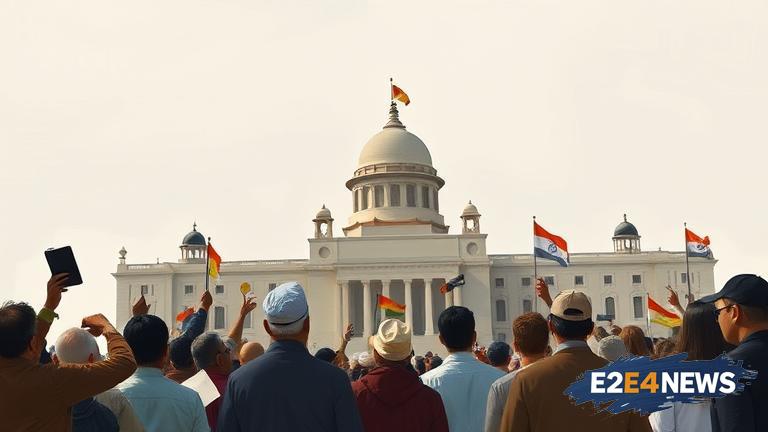The opposition has vehemently criticized the government over a newly introduced bill, claiming it is a deliberate attempt to muzzle dissent and silence opposition voices. According to KC Venugopal, a senior opposition leader, the bill is a political weapon designed to target and intimidate opposition parties. The bill, which has been met with widespread criticism, is seen as a blatant attempt to consolidate power and undermine the democratic process. Venugopal argued that the bill’s provisions are overly broad and vague, allowing for arbitrary interpretation and misuse by the ruling party. He warned that the bill’s passage would have far-reaching consequences, including the erosion of civil liberties and the suppression of free speech. The opposition has long accused the government of using legislative means to silence dissent and crush opposition, and this bill is seen as the latest salvo in this ongoing battle. The government, however, has defended the bill, claiming it is necessary to maintain law and order and prevent anti-national activities. Despite these assurances, the opposition remains unconvinced, pointing to the bill’s draconian provisions and the potential for abuse. The debate over the bill has sparked a heated national conversation, with many citizens expressing concern over the implications for democracy and human rights. As the bill makes its way through the legislative process, the opposition has vowed to fight it tooth and nail, using every available means to prevent its passage. The government, on the other hand, appears determined to push the bill through, despite the mounting opposition. The outcome of this battle is far from certain, but one thing is clear: the fate of India’s democracy hangs in the balance. The opposition has called on the government to withdraw the bill and engage in a constructive dialogue, but so far, there has been no response. The bill’s provisions have been widely criticized by civil society groups, human rights organizations, and constitutional experts, who argue that they are incompatible with India’s democratic principles. The government’s refusal to listen to these concerns has only added to the sense of unease and mistrust. As the standoff between the government and the opposition continues, the country is holding its breath, waiting to see what the future holds. The bill’s impact on the country’s democratic institutions and the rule of law is a major concern, with many fearing that it could have a chilling effect on free speech and dissent. The opposition has also raised questions about the bill’s timing, suggesting that it is a deliberate attempt to distract from more pressing issues, such as the economy and corruption. The government’s motivations for introducing the bill are also under scrutiny, with some accusing it of trying to consolidate power and undermine the opposition. The bill’s fate is likely to be decided in the coming weeks, and the outcome will have significant implications for the country’s future. The opposition is urging citizens to speak out against the bill and demand that the government withdraw it, while the government is pushing ahead with its plans to pass the legislation. The battle over the bill is a defining moment for India’s democracy, and the outcome will have far-reaching consequences for the country and its people. The international community is also watching the situation closely, with many expressing concern over the implications for human rights and democracy. The United Nations has issued a statement calling on the government to ensure that the bill is in line with international human rights standards. The European Union has also expressed concern, urging the government to engage in a constructive dialogue with the opposition and civil society groups. As the situation continues to unfold, one thing is clear: the fate of India’s democracy is hanging in the balance, and the outcome of this battle will have significant implications for the country and its people.
